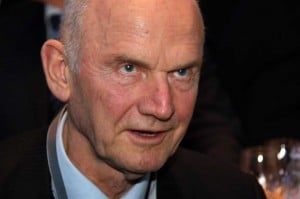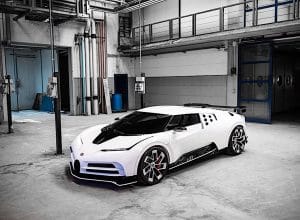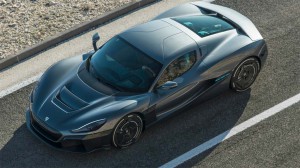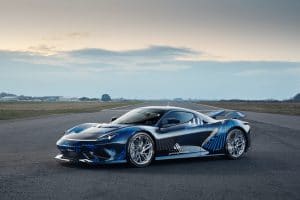Volkswagen is set to sell off its high profile but extremely low volume halo brand, Bugatti, to the small Croatian EV manufacturer Rimac, according to reports by Britain’s Car magazine.
The deal has already been given the go ahead by top VW management but is waiting for the final sign off by the German giant’s supervisory board. Volkswagen currently holds a stake in Rimac and would increase its holdings as part of the deal, reports Car.
The magazine also indicated VW may be ready to unload other parts of its empire, including the only slightly less exclusive Lamborghini, as well as Spanish mainstream brand Seat and other operations.
(Bugatti’s new Centodieci celebrates 110 years in style.)
The sale of Bugatti would mark another step in the dramatic shift underway at VW, one of the world’s largest automotive manufacturers. The company went through a massive expansion over the last three decades, one largely driven by former boss Ferdinand Piech. It is now trying to rationalize its structure at a time when it is shifting resources from traditional gas and diesel products to battery-electric vehicles.

Bugatti may confirm plans next month to produce a version of the all-electric, track only Vision Le Mans concept.
That transition is expected to run into the tens of billions of dollars over the coming decade and it appears VW management has lost interest in Bugatti, a brand that requires enormous investments to maintain its reputation for building some of the fastest and most powerful vehicles in the world.
But at a price tag starting around $3 million, sales of French-based Bugatti’s current Chiron model run barely one a week.
That sort of production rate is much more in line with what Rimac is used to. It currently produces a line of hypercars, the C_2, that deliver similar levels of power and performance, though the Croatian manufacturer is focused on pure electric drive technology.
Rimac was launched in 2009 by Mate Rimac and is based in Sveta Nidelja. One of a number of EV start-ups, it has built a reputation for engineering prowess in the new world of electrified vehicles that has caught the attention of a number of established automakers.
In May 2019, for example, the Hyundai Motor Group announced a $90 million investment that is expected to result in the development of performance-oriented battery-cars for brands that eventually may include Genesis and Kia, as well as Hyundai. The larger of the brands now holds an 11% stake in Rimac, Kia another 2%.
(Porsche expands stake in stake in battery supercar maker Rimac.)
Rimac, meanwhile, is providing the drivetrain technology for the Pininfarina Battista hypercar that debuted at the 2019 Geneva Motor Show.
For its part, VW first paired up with Rimac in 2018 through the Porsche Engineering Group which now holds a 15.5% stake in the Croatian firm. Due to the complex structure of the VW empire, any additional stake gained through the sale of Bugatti is expected to be held by Porsche. That, according to Car, appears to be the sweetener used to get the heirs of former VW boss Piech to sign off on the deal. They currently retain a controlling 50% stake of their own in the Volkswagen Group.
Inside sources indicate VW – through Porsche – would like to boost its holdings in Rimac to 49%.

Ferdinand Piech, grandson of the company’s founder, resigned as chairman due to a dispute with his successor, Martin Winterkorn.
How that would impact the EV startup’s other relationships is unclear. Along with Hyundai/Kia, other investors in Rimac includes Jaguar Land Rover, Swedish supercar company Koenigsegg and Canadian mega-supplier Magna.
A sale of Bugatti to Rimac would appear to suggest a major shift in the technological direction taken by the brand which was originally launched by namesake Ettore Bugatti a century ago. It currently relies on extremely sophisticated gas engines capable of delivering as much as 1,600 horsepower with the Chiron variant the Centodieci. Few would be surprised if Bugatti, under Rimac, would wind up using versions of that company’s electric drive technology.
Electric propulsion, once derided as slow and stodgy, is now proving to be extremely effective in performance cars due to its instant torque.
Car reports that this could be put to get use as an electric track version of the Bugatti Vision Le Mans concept that could be unveiled next month.
That’s something that VW plans to take advantage of as it works to launch around 50 all-elec-
tric models by mid-decade. But the hefty costs, on top of the more than $30 billion spent to resolve its diesel emissions scandal, has drained the German company’s finances. And that has led to growing rumors that a number of brands could be paired off.
According to Car and other European outlets, the possible sale of Lamborghini, Seat, Italdesign, and Ducati is “under investigation.”
(Rimac Concept 2 nudge 2,000 hp, hits 60 mph in less than 2 seconds.)
TheDetroitBureau.com has reached out to VW for comment on the Car report.



